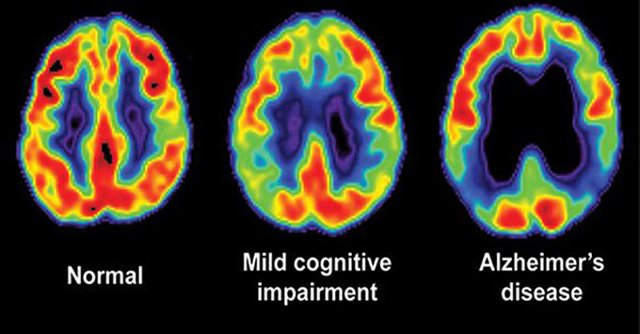HOW FRAGRANCES CAN HELP ALZHEIMER PATIENTS

SOURCE
Studies tend to show how recovery of memories or reduction of problematic behaviors can be improved through olfaction.
Fragrances and olfaction can help Alzheimer's patients in their everyday lives.
More and more innovative research is examining the question of the non-pharmacological approach to the management of Alzheimer's disease, the olfactory cortex is directly connected to the areas of the treatment of emotions and memories, explaining all the power of this meaning. Studies tend to show how recovering memories or reducing problematic behaviors such as walking can be improved through olfaction.
In everyday life, for example, one can soothe a person by making him breathe lavender essential oil. It has relaxing virtues and can lower the heart rate, make breathing calmer etc...A simple smell can bring out a memory of childhood, bring up long-buried emotions, induce the desire to communicate, to share, and thus work the memory, the language, the reasoning and to reduce the anxiety by creating the social bond: one of the protective factors in Alzheimer's disease.
It is not only the smell that matters and the neuro-chemical cascades that flow from it, but also the link that will be created between the sick person and the caregiver. This can of course only work by bringing on the person not a look of "sick" person but a benevolent look towards a human person!
One of the first functions affected in Alzheimer's disease is to associate several senses. For example, if I have to memorize a list of words presented orally such as: table, cat, blue, chair, pen, I can use mental imagery and associate them in a single image instead of 5 different words.
 source
source
Thus, I can mentally visualize a cat on a chair next to a table on which rests a blue pen which will allow me to create meaning and make the mnemic trace stronger. In short, there is an infinity of possibilities for stimulating memory through the body via smells, movements, sounds, the visual: the whole thing is to associate them, to create a link to "the human essence" and to respect the person as a whole. If the sick person of Alzheimer liked roses for example but hated jasmine it will necessarily take into account in the choice of perfumes, flowers to propose. It also concerns the clothes, the habits of life which make it possible to keep a mark: an identity which can still remain present a long time.
It is because our senses do not work unilaterally but on the contrary with each other that researchers are also interested in this plurimodality.
How can aromatherapy help Alzheimer's patients to stimulate their sensory memory?
Second part
 source
source
Dr. Pénoël, a specialist in medical Aromatherapy for 35 years, is a pioneering physician in medical and scientific aromatherapy . Regularly invited as a keynote speaker in Europe, Japan, Canada, Norway, Mexico, United States, he has traveled the globe to discover new aromatic plants and their essential oils.
With his clinical experience, his doctor's skills and his passion for transmitting, he created a new discipline based on the understanding of the action of essential oils: Quantum Aromatherapy .
Also, he insists on the importance of setting up a protocol to "human face", according to the ternary approach, namely, what he calls the
3 P: ( Plant + Patient + Practitioner.)
Dr. Pénoël
" It is important to institute a regular and consistent protocol, from the simplest, most well-known to the most complex, to create new neurological connections ."
In the Alzheimer's patient, it is necessary to select the odors to relax, stimulate or promote sleep.
First of all by identifying the smells of history in the patient with Alzheimer's by questioning his family and his entourage.
Then, proceed to a cognitive stimulation, through the olfactory recognition which follows the following diagram in 3 times:
1 st time: The caregiver calls the smell felt , for example, by asking the question: "It smells of orange, you like that smell? "
2 nd time : The patient repeats the name while breathing the smell.
3 rd time: The caregiver asks the question: What is like smell?
In a later phase the question can be done by integrating a 2nd smell: What is it? Orange or lavender?
- The caregiver must promote short sentences by presenting a choice of essential oils restricted: 2 or 3 at most.
- The caregiver should be persistent in encouraging the patient to answer his question by speaking in a calm, firm and distinct voice.
- It will be necessary to relate the smell to a part of the history of the patient, for example, if the person grew up in Algeria near an orangery, one will be able to remind him this place while using the odor to stimulate the cognition and the memory.
Make the patient responsible and creative
Dr. Pénoël stresses the importance of making the patient responsible and creative:
" The patient suffering from this disease is in a loss of autonomy, through the odors, helping him to encourage the patient to create his own aromatic fragrance. Being able to choose the smells that will constitute the perfume, select, choose, create, decide, all this is part of a process that tends gradually to re-empower the patient.
source
Deciding and choosing personally are key elements for increased confidence and autonomy. Once the perfume created, it will be possible to use it in olfaction on a wet or stick, in diffusion, or on olfactory glasses: this system of olfactory glasses which is used in Aromatherapy Quantum allows to free the hand and to have "within earshot" the chosen odor sufficiently prolonged to obtain a deep action.
Essential oils are raw aromatic raw materials, they can be used in diffusion, perfume but also in massage and even in taste (like the essential oil of lemon, of orange, the various mints or still the caraway or the caraway for example.
It will be a question of choosing with care the essential oils which can have this dimension "poly-interfacial" and to be used by the three ways: the olfactory, cutaneous and digestive way.
These smells contribute to the curiosity and awakening of the senses of patients with Alzheimer's disease.
I find it interesting to note that while most of these types of studies rely on the smell of plants, the studies do not usually take into consideration that smell is the vehicle--the acting agent could be the plant itself.
Do you think that we would see these types of benefits if we used smells associated with memories, but not connected to the plant world? For example, if one of your parents worked in a car garage, therefore you think of the smell of grease connected to your parent. If you have Alzhemier, would the smell of grease have the same affect as the above to trigger memories? If it does not, and these results are only shown with plant-based smells, then I hope they will also add the plant itself as a subject of the research. What do you think?
Hello. This would indeed be interesting to study, but at the moment, smell only has a suspected potential to play some part in diagnosing the disease or understanding how it works. There is no research that shows that fragrances can actually help. There has been a research trying to find a vague correlation between the sense of smell and Alzheimer's but it could not be replicated.
I would also be extremely cautious of any doctors or self-claimed scientists who use the word "quantum" unnecessarily. It's a new trend in pseudo-science and unfortunately this person is using it as a marketing trick to sell essential oils. There is nothing "quantum" about essential oils.
The most important thing in science is to cross-reference and check your sources. It is essential in order to separate true scientific research and smart but misleading marketing tricks! :)